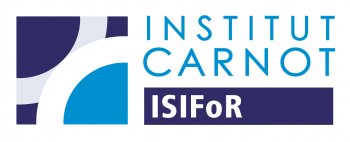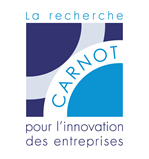Carnot ISIFoR

Labeled in 2011, the ISIFoR Carnot Institute federates academic research focused on subsurface-related energy and environmental objectives in southwest France. The association between its 11 laboratories is a strong and distinctive asset on the international scene and allows the development of an innovative synergy with companies (from start-ups to big companies).
In the context of a climate and environmental emergency that has become a major challenge for our society, ISIFoR supports your RI&D and innovation projects in the field of energetic transition especially in the sustainable engineering of georesources.
Key figures
| Permanent staff (full-time equivalent) | 865 |
| PhD Students | 350 |
| Partnership incomes with industry | 8 M€ |
Contact
ISIFoR Carnot Institute
Université de Pau et des Pays de l'Adour, Présidence
Avenue de l'Université
BP 576
64012 Pau Cedex
France
Daniel BRITO
+33 (0)5 59 40 78 30
Virginie CATURLA
+33 (0)5 59 40 77 9
Louis DECAM
+33 (0)6 27 18 05 94
daniel.brito[a]univ-pau.fr Email contact
virginie.caturla[a]univ-pau.fr Email contact
louis-frederic.decam[a]univ-pau.fr
Parent institutions
- ADERA
- CENTRE NATIONAL DE LA RECHERCHE SCIENTIFIQUE
- CENTRE NATIONAL D'ETUDES SPATIALES TOULOUSE
- INSTITUT DE RECHERCHE POUR LE DÉVELOPPEMENT
- INSTITUT NATIONAL POLYTECHNIQUE DE BORDEAUX
- INSTITUT NATIONAL POLYTECHNIQUE DE TOULOUSE
- UNIVERSITÉ BORDEAUX MONTAIGNE
- UNIVERSITÉ DE PAU ET DES PAYS DE L'ADOUR
- UNIVERSITÉ TOULOUSE 3 - PAUL SABATIER

